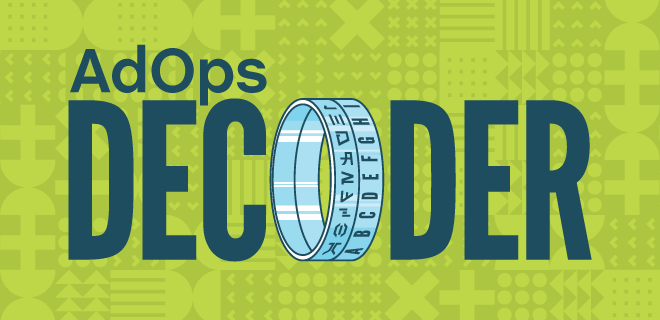
The announcement of IAB Tech Lab’s new Green Initiative and accompanying working group – focused on sustainability in the programmatic ecosystem – at the IAB’s Annual Leadership Meeting (ALM) shouldn’t come as a surprise.
In 2021, every major tech firm, holding company, and large brand made carbon-neutral commitments, but putting them into practice is difficult. The number of ways to calculate emissions and the ensuing cottage industry of companies offering to help quickly highlighted the need for standardization across the programmatic landscape.
At ALM, IAB Tech Lab CEO Anthony Katsur repeatedly said, “You can’t manage what you can’t measure.” To remedy this, Tech Lab has partnered with trade organization AdNetZero, which is working to determine a standardized framework for emissions calculation.
This essential, complicated, and nuanced task will take time to complete. Because the planet doesn’t have that time to wait, Tech Lab will use proprietary solutions from members who have donated their expertise and already available information on the programmatic supply chain.
IAB Tech Lab Strategies for Implementing the ‘green Initiative’
Companies can try a few different things to reduce the amount of carbon emitted through our supply chains, the exact amount of which will vary by the myriad ways to calculate emissions. Which party calculates the emissions number and the methodology employed is up to the companies involved in the transaction. The consensus around the carbon number and its calculation are not necessary to drive action around lowering the amount of duplicative and wasteful processing.
Fewer signals – especially those that result from duplication in the bid stream – means less energy gets used. Said simply, unnecessary duplication of signals equals waste.
The January RTB Supply Path Benchmarking report from consulting firm Jounce media estimates that 45% and 37% of all ad requests for display and video (respectively) do not have sales exclusivity and are re-broadcasted. This creates indirect supply paths, which, when talking about an industry with trillions of impressions being traded daily, is an awful lot of signals being sent and received, all of which require energy. The resulting carbon impact should be carefully evaluated between buy and sell side partners.
We need to lower the amount of data processed in trillions of daily ad requests. The IAB Tech Lab has committed to publishing programmatic best practices alongside their quantified carbon impact from sustainability vendors like Scope3 and Cedara.IO, who are part of the working group. To educate the industry, we will publish benchmarks using existing data on supply paths. In the future, we will update models to include emissions data from Ad Net Zero’s Calculation framework.
The ‘green Initiative’ Pledge
In today’s economy, it is vital that the solutions we deliver work for everyone — creating a big tent involving any IAB Tech Lab member who wants to be part of the conversation. That includes multiple sustainability vendors, DSPs, Agencies, Publishers, and SSPs, which will ensure that all sides are represented.
Is this just greenwashing? Maybe for some, but intent doesn’t matter. The demand side has already started biasing media investment toward suppliers actively trying to clean up convoluted supply paths, thereby lowering carbon emissions. IAB Tech Lab is committed to educating the ecosystem, promoting and quantifying best practices, supporting transparency into industry benchmarks, and providing telemetry.
In 2023, the green initiative within IAB Tech Lab has committed to the following:
- Creating a working group open to all Tech Lab members to collaborate on different avenues to lower carbon emissions in the programmatic supply chain
- Collating and re-publishing programmatic best practices and the quantified carbon emissions wasted by not following the guidance
- Expanding into topics that create waste within the programmatic supply chain but have lacked official specification
- Iteratively adding benchmarks to the Tools Portal, starting with information already available from ads.txt/app-ads.txt and sellers.json entries and expanding to carbon emissions and more based on input from the working group.
This initiative is more significant than any single publisher, advertiser, ad tech company, or trade group. The passion and intention are evident to anyone looking. But to succeed, the entire advertising ecosystem must commit the time, expertise, and investment required to impact the industry materially.
Read our dedicated announcement here to learn more about Tech Lab’s commitment to this topic in 2023 and beyond.